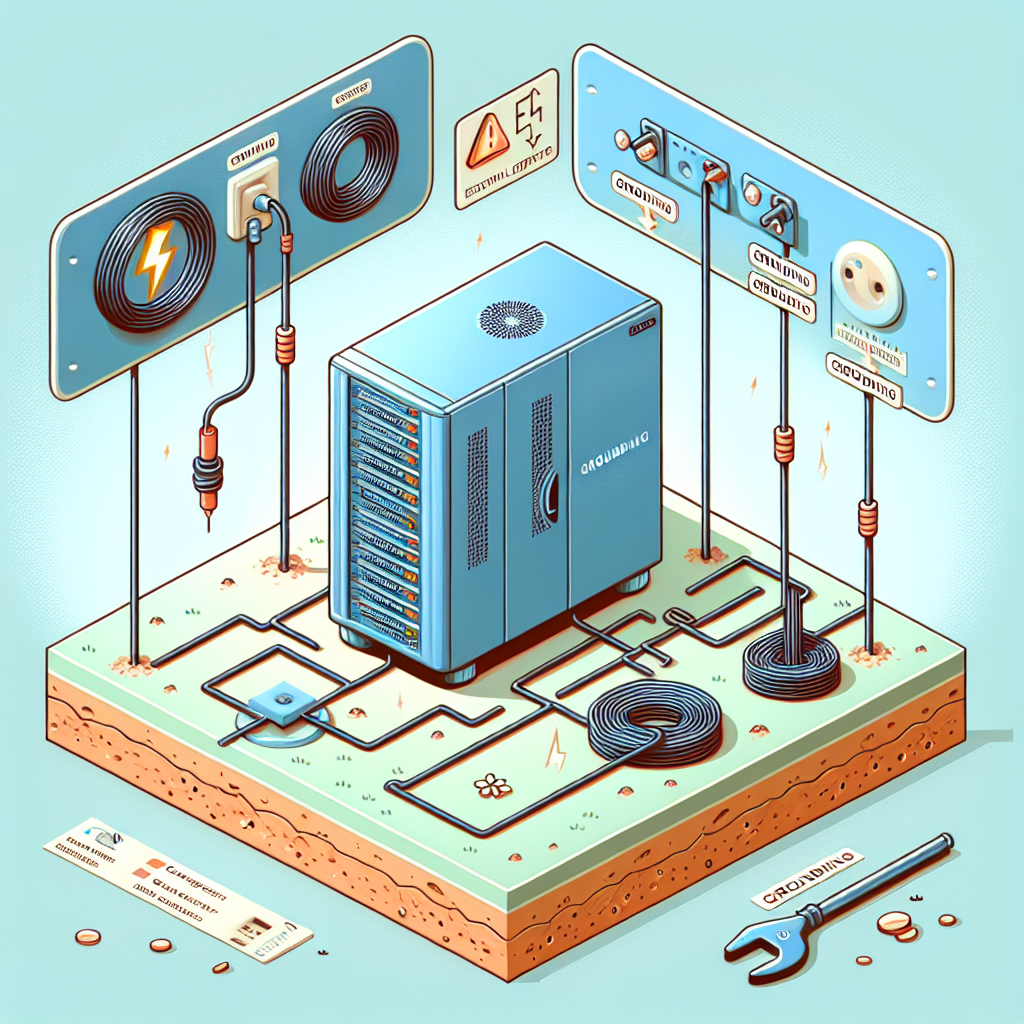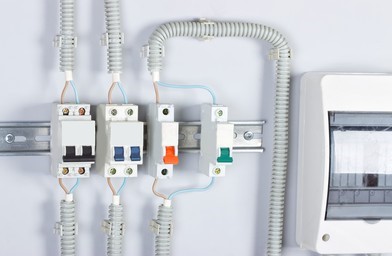When it comes to safeguarding expensive equipment—whether in your home, office, or commercial space—proper electrical grounding is a crucial aspect that can prevent costly damage. In a world where electronic devices, machinery, and appliances play a significant role in daily operations, it’s important to ensure that they’re well-protected against electrical faults that could cause malfunctions or even destruction. In this blog, we’ll break down what electrical grounding is, why it matters, and the steps you can take to make sure your equipment is properly grounded for maximum protection.
What Is Electrical Grounding?
Electrical grounding is essentially the process of connecting your electrical system to the earth (or another conductive body) to create a safe pathway for stray electricity. This grounding helps in directing excess electrical currents away from sensitive equipment, which reduces the risk of electrical shocks or damage caused by electrical surges or faults.
In simple terms, grounding ensures that electricity follows a safe, low-resistance path—away from your equipment, and toward the earth where it’s safely dissipated.
Why Is Grounding Important for Expensive Equipment?
When you invest in expensive electronics, machinery, or appliances, ensuring they’re protected from electrical faults is a must. Here’s why grounding plays such a vital role:
- Protects Against Power Surges: Surges can occur due to a variety of reasons—like lightning strikes, sudden power outages, or fluctuations in your power supply. Without proper grounding, these surges can travel through the electrical wiring and cause irreparable damage to your sensitive equipment. A grounded system provides a pathway for this excess energy to flow safely into the ground, keeping your devices secure.
- Prevents Electrical Shocks: Grounding is a safety mechanism that protects people and equipment alike. If an electrical fault occurs, grounding ensures that any stray voltage is directed away from your devices and people. This minimizes the risk of electrical shocks that could result from coming into contact with exposed metal parts of electrical equipment.
- Minimizes Equipment Interference: Many types of sensitive equipment, such as computers, communication systems, and servers, are prone to electromagnetic interference (EMI). Without proper grounding, EMI can distort the signals and cause malfunctions. Grounding helps to mitigate these interferences, ensuring that your devices work optimally.
- Meets Compliance Standards: Electrical grounding is also important for ensuring compliance with electrical safety codes. Whether you’re operating at home or in a commercial space, local and national regulations require that systems are properly grounded to minimize safety hazards.
How Does Grounding Protect Your Equipment?
So, how exactly does proper grounding help protect your expensive equipment? Let’s look at some key benefits:
1. Prevents Damage from Electrical Surges
Electrical surges, often caused by lightning or power disruptions, can wreak havoc on sensitive equipment like computers, servers, and medical machines. A surge can carry thousands of volts that may fry circuits and destroy your equipment. When grounded properly, the electrical system directs this excess energy safely into the earth, protecting your valuable machinery.
For example, installing surge protection devices in your home or office, along with a reliable grounding system, provides an extra layer of protection.
2. Avoids Voltage Imbalance
Voltage imbalance is common when multiple devices are operating on the same electrical system. For instance, in a commercial space with numerous machines running simultaneously, voltage discrepancies can lead to overheating and possible equipment damage. A proper grounding system ensures that power is distributed evenly, reducing the chances of this issue.
3. Reduces Electromagnetic Interference (EMI)
Electrical systems without grounding are more likely to create electromagnetic interference (EMI), which can affect the operation of sensitive equipment. Computers, telecommunication systems, and other electronics are especially susceptible to interference, which can disrupt their functioning. Grounding reduces this risk and ensures the equipment operates efficiently.
Steps to Ensure Proper Electrical Grounding
Making sure your system is grounded properly is essential to protecting your equipment. Here are some practical steps to ensure your grounding system is working as it should:
1. Consult a Professional Electrician
If you’re unsure about your grounding system, the first step is to consult a licensed commercial electrician or residential electrician. They can assess your electrical setup and identify whether the grounding is sufficient. If it’s not, they will provide solutions that suit your needs.
2. Check Grounding Connections
Over time, grounding connections can weaken, loosen, or corrode, especially in areas exposed to moisture. Inspect your grounding system regularly to ensure all connections are intact. This includes checking your electrical panel services and ensuring they comply with local codes.
3. Use Ground Fault Circuit Interrupters (GFCIs)
Installing GFCI outlets is an excellent way to protect your electrical outlets and devices. These devices detect faults and interrupt power flow, preventing electrical shock. GFCIs are especially important in areas where water is present, such as kitchens or bathrooms.
4. Install Surge Protection Devices
Surge protection devices (SPDs) help shield your equipment from voltage spikes. You can install these devices at various points in your electrical system—both at the service entrance and at individual outlets. For added protection, you can install arc fault breakers that will automatically trip in the event of a dangerous electrical fault.
5. Maintain Your Grounding System
Routine inspections and maintenance of your electrical system are critical for keeping your equipment safe. Over time, grounding systems can degrade due to environmental factors. Call a professional for regular inspections to catch any issues before they become major problems.
Conclusion
Proper grounding is vital to the longevity and safe operation of expensive equipment. Whether you’re protecting sensitive electronics at home or costly machinery in a commercial space, a well-grounded system significantly reduces the risk of damage caused by electrical surges, shocks, and interference. Don’t wait for a fault to occur—ensure that your grounding system is up to standard by consulting with a qualified electrician and maintaining your system regularly.
Investing in the right electrical grounding systems and surge protection can save you thousands of dollars in repairs or replacements. If you’re unsure whether your system is adequately grounded, it’s always a good idea to have a professional evaluate your setup.





